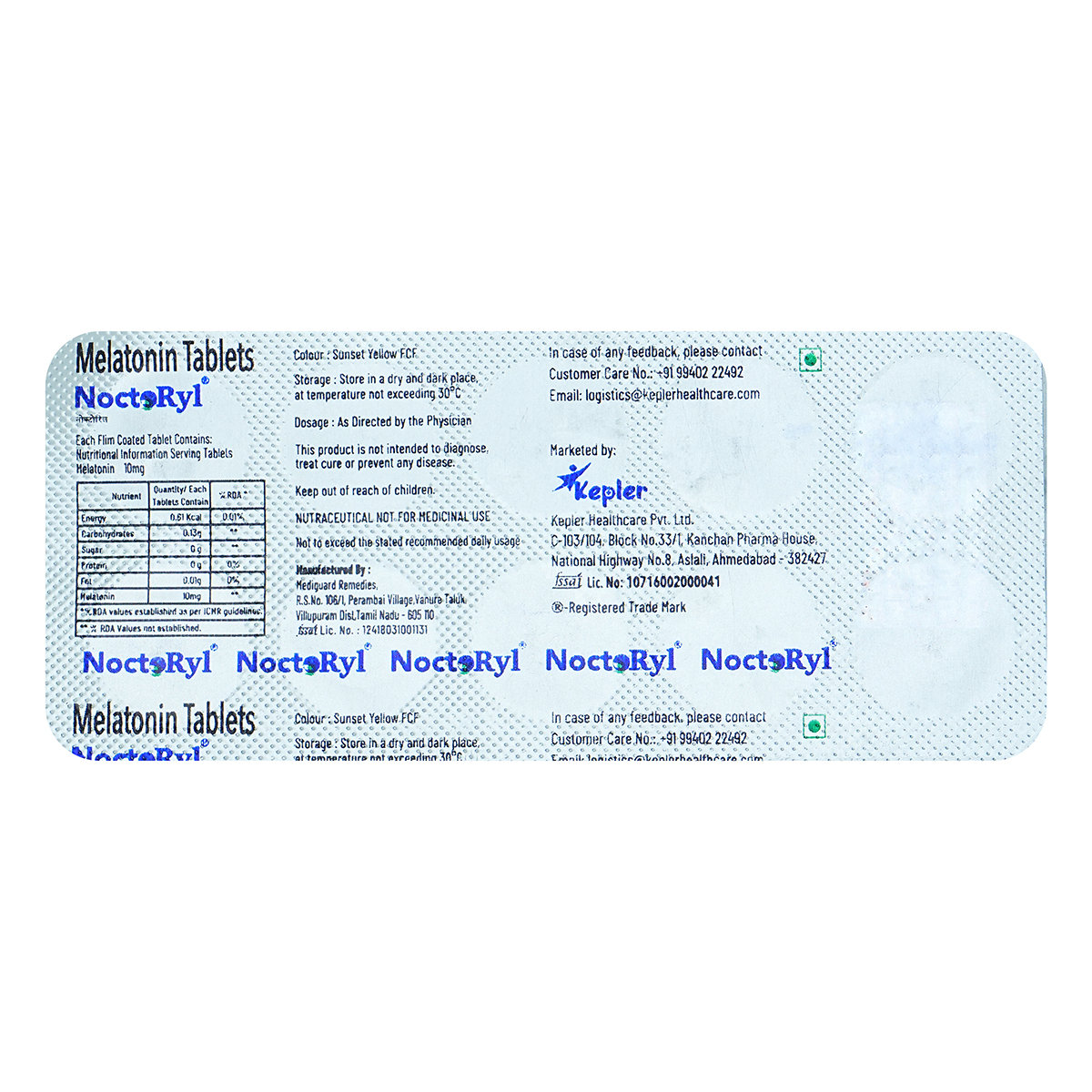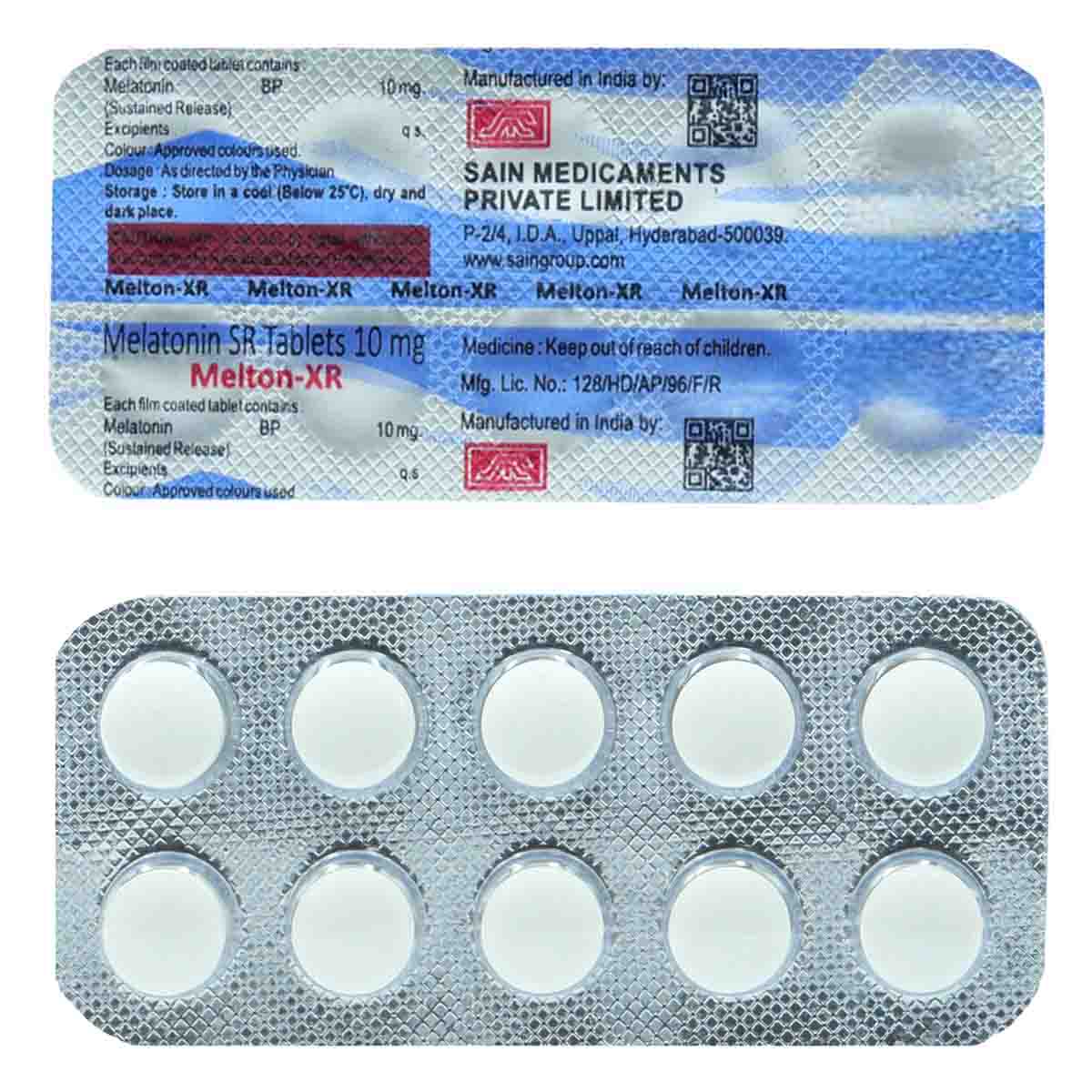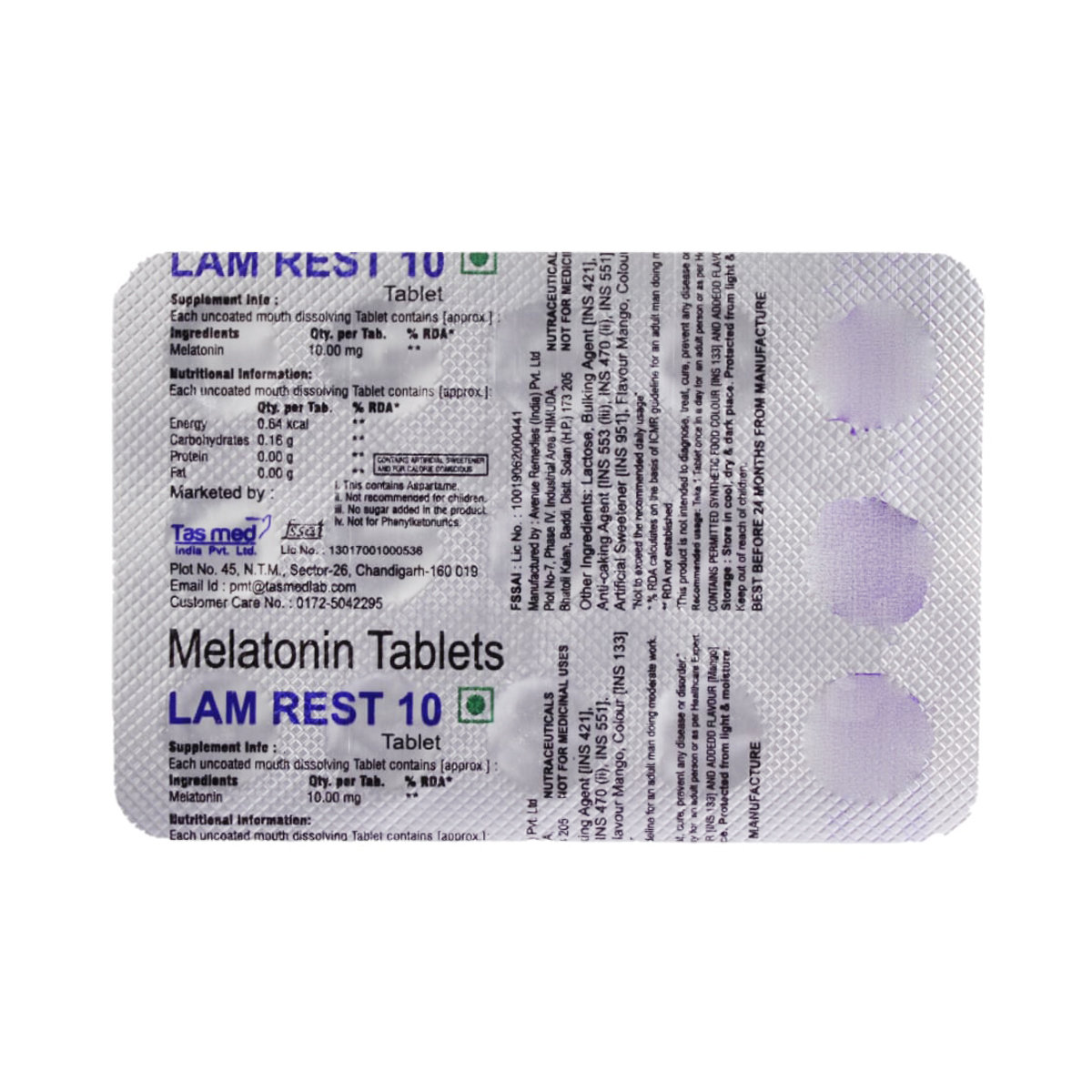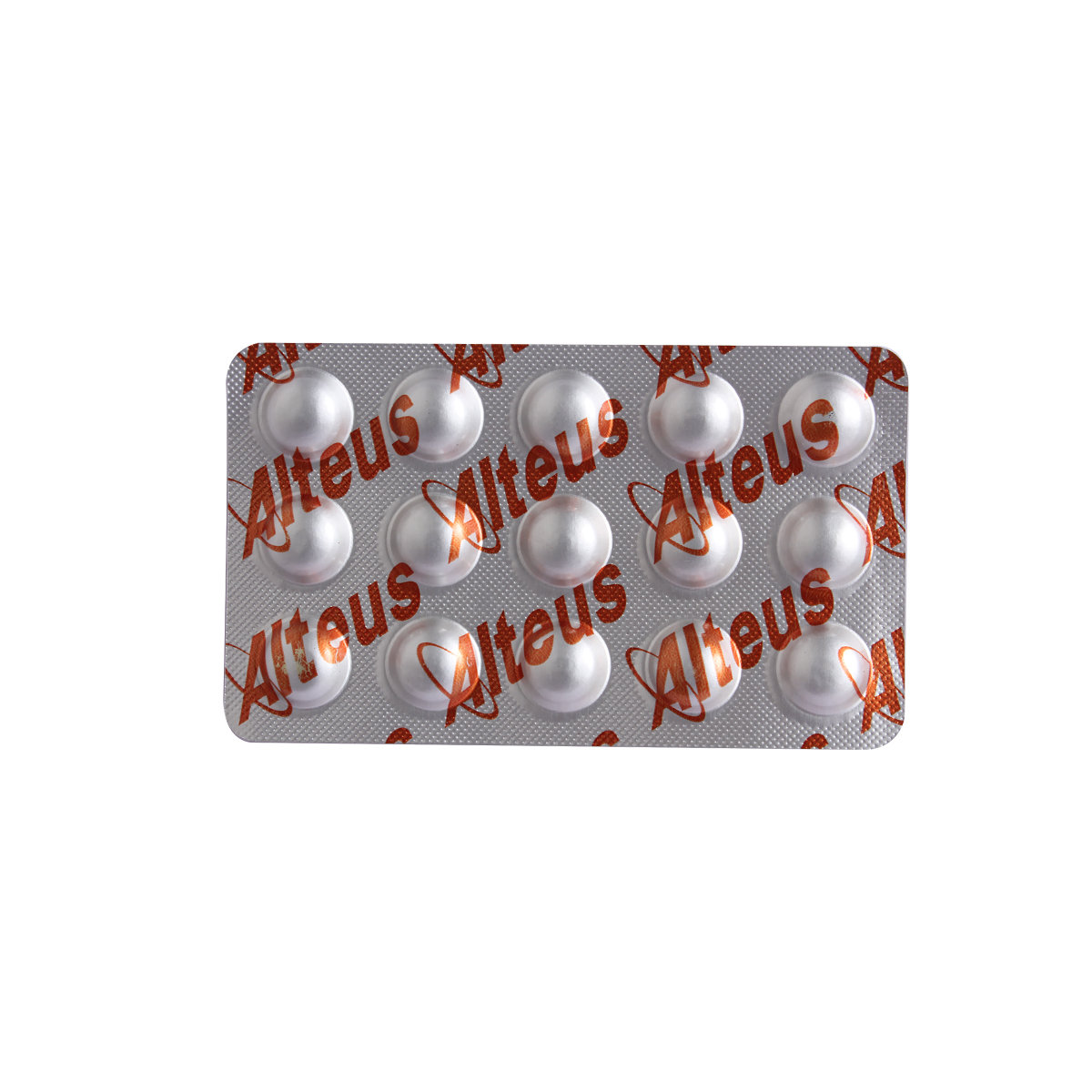Delatonin Tablet 30's
MRP ₹440
(Inclusive of all Taxes)
₹66.0 Cashback (15%)
Provide Delivery Location
Online payment accepted
 Prescription drug
Prescription drugWhats That
Composition :
Manufacturer/Marketer :
Consume Type :
Expires on or after :
Return Policy :
About Delatonin Tablet
Delatonin Tablet is a hormone that helps control sleep patterns. Delatonin Tablet is used to treat jet lag and insomnia (sleep disorders). Jet lag is a sleep disorder that occurs in people who travel across multiple time zones. Insomnia is a sleep disorder which causes trouble falling and/or staying asleep.
Delatonin Tablet contains ‘Melatonin’ that synchronises the body’s biological day-and-night rhythm. Delatonin Tablet acts on the receptors in the body, thereby controlling the circadian rhythm and increasing the propensity to sleep.
You are advised to take Delatonin Tablet for as long as your doctor has prescribed it for you, depending on your medical condition. In some cases, Delatonin Tablet may cause common side effects such as dizziness, drowsiness, headache, and nausea. Most of these side effects do not require medical attention and will resolve gradually over time. However, you are advised to talk to your doctor if you experience these side effects persistently.
Consult your doctor if you are pregnant. Do not take Delatonin Tablet if you are breastfeeding as it passes into breastmilk. Do not drive or operate machinery as Delatonin Tablet may cause drowsiness and dizziness. Avoid consuming alcohol with Delatonin Tablet as it could lead to increased drowsiness and dizziness. Keep your doctor informed about your health condition and medicines to rule out any side effects.
Uses of Delatonin Tablet
Directions for Use
Key Benefits
Delatonin Tablet is a hormone that helps control sleep patterns. Delatonin Tablet is used to treat jet lag and insomnia (sleep disorders) in people over 55 years. Delatonin Tablet acts on the receptors in the body, thereby controlling the circadian rhythm and increasing the propensity to sleep. Delatonin Tablet adds to the body’s natural supply of the hormone, helps you get to sleep, and improves sleep quality.
Storage
- Inform your doctor about dizziness symptoms. They may adjust your medication regimen or prescribe additional medications to manage symptoms.
- Follow your doctor's instructions for taking medication, and take it at the same time every day to minimize dizziness.
- When standing up, do so slowly and carefully to avoid sudden dizziness.
- Avoid making sudden movements, such as turning or bending quickly, which can exacerbate dizziness.
- Drink plenty of water throughout the day to stay hydrated and help alleviate dizziness symptoms.
- If you're feeling dizzy, sit or lie down and rest until the dizziness passes.
- Track when dizziness occurs and any factors that may trigger it, and share this information with your doctor to help manage symptoms.
- Get enough sleep. Maintain a regular sleep cycle.
- Eat a healthy diet and exercise regularly.
- Manage stress with yoga or meditation.
- Limit alcohol and caffeine.
- Avoid driving or operating machinery unless you are alert.
- Hydrate your body: Drink enough water to prevent dehydration and headaches.
- Calm Your Mind: Deep breathing and meditation can help you relax and relieve stress.
- Rest and Recharge: Sleep for 7-8 hours to reduce headache triggers.
- Take rest: lie down in a quiet, dark environment.
- Cold or warm compresses can help reduce tension.
- Stay Upright: Maintain good posture to keep symptoms from getting worse.
- To treat headaches naturally, try acupuncture or massage therapy.
- Over-the-counter pain relievers include acetaminophen and ibuprofen.
- Prescription Assistance: Speak with your doctor about more substantial drug alternatives.
- Severe Headaches: Seek emergency medical assistance for sudden, severe headaches.
- Frequent Headaches: If you get reoccurring headaches, consult your doctor.
- Headaches with Symptoms: Seek medical attention if your headaches include fever, disorientation, or weakness.
- Inform your doctor about the nausea and discuss possible alternatives to the medication or adjustments to the dosage.
- Divide your daily food intake into smaller, more frequent meals to reduce nausea.
- Opt for bland, easily digestible foods like crackers, toast, plain rice, bananas, and applesauce.
- Avoid certain foods that can trigger nausea, such as fatty, greasy, spicy, and smelly foods.
- Drink plenty of fluids, such as water, clear broth, or electrolyte-rich beverages like coconut water or sports drinks.
- Use ginger (tea, ale, or candies) to help relieve nausea.
- Get adequate rest and also avoid strenuous activities that can worsen nausea.
- Talk to your doctor about taking anti-nausea medication if your nausea is severe.
- Record when your nausea occurs, what triggers it, and what provides relief to help you identify patterns and manage your symptoms more effectively.
Drug Warnings
Do not take Delatonin Tablet if you are allergic to any of its contents. Inform your doctor if you have epilepsy, autoimmune diseases, diabetes, or impaired liver or kidney function. Talk to your doctor before taking Delatonin Tablet if you are pregnant. Do not take Delatonin Tablet if you are breastfeeding as it passes into breastmilk. Avoid consuming alcohol with Delatonin Tablet as it could lead to increased drowsiness and dizziness.
Drug-Drug Interactions
Drug-Drug Interactions
Login/Sign Up
The combined use of Delatonin Tablet and Selegiline may increase the side effects.
How to manage the interaction:
Although there is a possible interaction between Delatonin Tablet and Selegiline, they can be taken together if your doctor has prescribed them. Contact your doctor immediately if experience any symptoms such as dizziness, drowsiness, confusion, and difficulty concentrating. Do not stop using any medications without talking to a doctor.
Drug-Food Interactions
Drug-Food Interactions
Login/Sign Up
Diet & Lifestyle Advise
- Try sticking to a sleep schedule. Keep your bedtime and waketime consistent.
- Practise yoga or meditation as it helps in relieving stress.
- Avoid smoking and alcohol consumption.
- Avoid doing a strenuous activity before bedtime.
- Try relaxation therapy. Read a book or listen to soothing music.
- Do not consume caffeinated or carbonated products.
- Avoid taking large meals and beverages before bedtime.
- Exercise moderately as it can help in relieving stress.
Side Effects of Delatonin Tablet
- Dizziness
- Drowsiness
- Headache
- Nausea
Habit Forming
Therapeutic Class
All Substitutes & Brand Comparisons
RX
Out of StockCirkedian Tablet
Sharing Formulations Pvt Ltd
₹316
(₹9.48 per unit)
28% CHEAPERRX
Out of StockMelarian 10 Tablet 10's
Ardent Life Sciences Pvt Ltd
₹110
(₹9.9 per unit)
24% CHEAPERRX
Metotrip-10 Tablet 15's
Tripada Healthcare Pvt Ltd
₹168.5
(₹10.11 per unit)
23% CHEAPER
Author Details
We provide you with authentic, trustworthy and relevant information
Drug-Diseases Interactions
Drug-Diseases Interactions
Login/Sign Up
FAQs
Drug-Drug Interactions Checker List
- FLUVOXAMINE
- CIMETIDINE
- ESTROGEN
- RIFAMPICIN
- CARBAMAZEPINE
- MIDAZOLAM
- ZOLPIDEM
- ZOPICLONE
- WARFARIN
- PSORALENS
- TEMAZEPAM
- ZALEPLON
Disease/Condition Glossary
Insomnia: Insomnia is a sleep disorder which causes trouble falling and/or staying asleep. The causes of insomnia are poor sleeping habits, anxiety, depression, illness, lack of exercise, or certain medications. Symptoms of insomnia include difficulty falling and/or staying asleep and not feeling well-rested due to low sleep quality.
Jet lag: Jet lag is a sleep disorder that occurs in people who travel across multiple time zones. Jet lag occurs when the circadian rhythm (the body’s natural clock) is disrupted due to travelling between different time zones. It is a temporary condition that affects energy and the state of alertness. Jet lag causes sleep disturbances, fatigue, daytime tiredness, irritability, mild mental impairment, and digestive system disturbances experienced after flying.

Have a query?
Alcohol
Safe if prescribed
Avoid consumption of alcohol while taking Delatonin Tablet as it may cause increased drowsiness.
Pregnancy
Consult your doctor
If you are pregnant, inform your doctor before taking Delatonin Tablet ; your doctor will prescribe only if the benefits outweigh the risks.
Breast Feeding
Consult your doctor
Avoid taking Delatonin Tablet if you are breastfeeding as it passes into breastmilk. Please consult your doctor for more information.
Driving
Safe if prescribed
Delatonin Tablet causes dizziness and sleepiness. Do not drive or operate machinery after taking this medicine.
Liver
Consult your doctor
Please consult your doctor if you have a liver impairment or any concerns before taking Delatonin Tablet .
Kidney
Consult your doctor
Please consult your doctor if you have kidney impairment or any concerns before taking Delatonin Tablet .
Children
Safe if prescribed
Please consult your doctor. Your doctor may decide the dose and duration based on the child's age, body weight and condition.









_0.jpg?tr=q-85)

